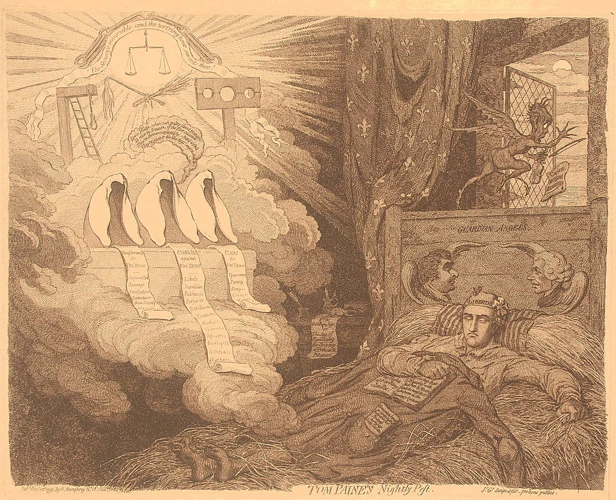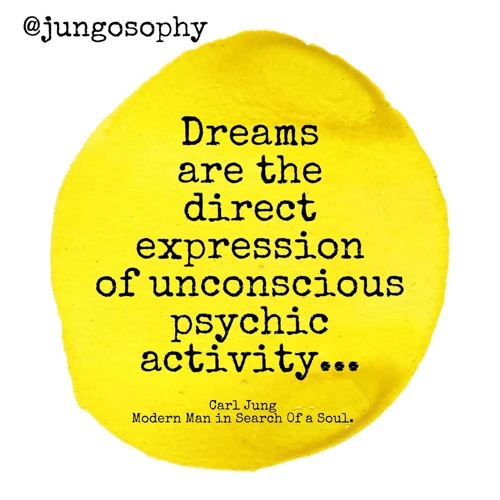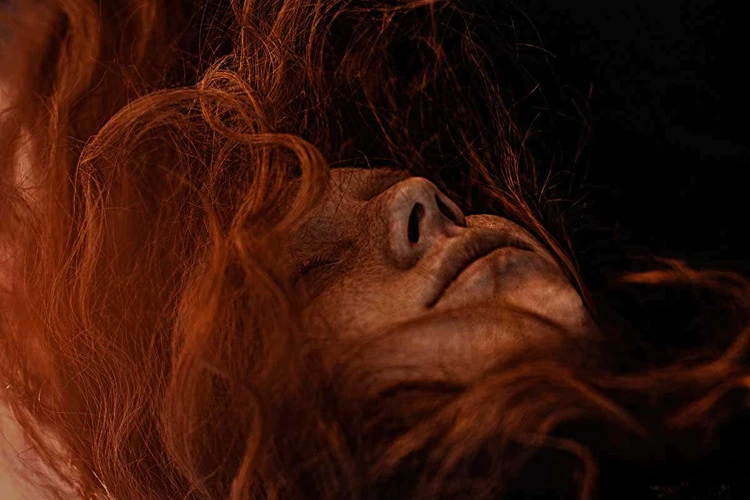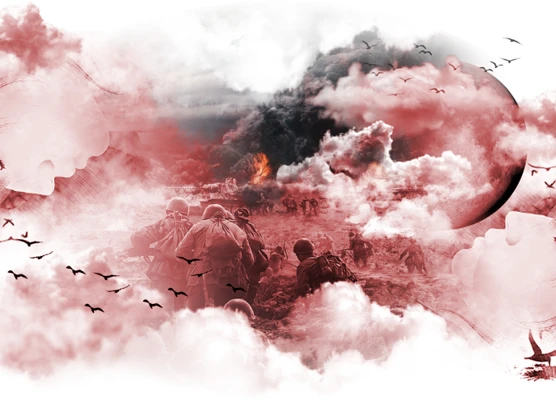War dreams can be intense and unsettling, leaving us pondering their hidden meanings and the emotions they evoke. These vivid dreams often symbolize more than just a battle or conflict. They can reflect historical and cultural contexts, personal conflicts, fears and anxieties, as well as power dynamics and control. Decoding the symbolism within war dreams can provide valuable insights into our subconscious mind and help us navigate our waking lives with a deeper understanding of our thoughts and emotions. In this article, we will explore the multifaceted symbolism of war dreams, interpret different aspects of these dreams, delve into the common emotions experienced during war dreams, and discuss the psychological interpretations behind them. Join us on this intriguing journey to unravel the mystifying world of war dreams.
The Symbolism of War in Dreams

The symbolism of war in dreams is rich and complex, tapping into various aspects of our psyche. These dreams can be influenced by both historical and cultural contexts, reflecting the collective memory and experiences of humanity. They can also serve as manifestations of personal conflicts and struggles, representing the battles we face in our daily lives. The presence of war in dreams can evoke feelings of fear and anxiety, highlighting our anxieties about the unknown and the potential for chaos. Additionally, war dreams often touch upon power dynamics and control, symbolizing our desires for dominance or our struggles against oppressive forces. Understanding the symbolism within war dreams can provide valuable insights into our subconscious mind, guiding us towards self-awareness and personal growth.
1. Historical and Cultural Context
The historical and cultural context plays a significant role in interpreting the symbolism of war dreams. These dreams can draw upon collective memories and experiences, reflecting the impact of historical events or cultural narratives on our subconscious mind. For example, dreaming about ancient battles could signify a connection to our ancestral heritage or a fascination with historical conflicts. Dreaming of wars influenced by specific time periods, such as World War II or the Vietnam War, may indicate the lingering effects of those events on our psyche. The cultural lens through which we view war also affects the symbolism in our dreams. Cultural narratives, stories, and media portrayals of war can shape our dream imagery and the emotions they evoke. It is important to consider the historical and cultural context when interpreting war dreams as it can provide valuable insights into the subconscious influences that shape our dreamscape.
2. Manifestation of Personal Conflict
Manifestation of personal conflict is a significant aspect of war dreams. These dreams often reflect the internal battles we face within ourselves. They can symbolize unresolved emotions, unresolved conflicts, or dilemmas that we are grappling with in our waking lives. In war dreams, the clashes and struggles may represent the conflicting desires, values, or choices we are experiencing. The symbolism within these dreams can provide valuable insights into our subconscious mind, highlighting areas of inner turmoil that may require attention or resolution. Exploring these personal conflicts can lead to personal growth and self-awareness.
3. Fear and Anxiety
Fear and anxiety are common emotions experienced in war dreams. These dreams often depict intense and chaotic situations, triggering a sense of fear and unease within the dreamer. The feeling of being caught in the midst of a war zone can symbolize the anxieties we carry in our waking lives. It may reflect our fears of conflict, violence, or the unknown. War dreams can also serve as a metaphor for the internal battles we face, representing our inner anxieties, insecurities, and the struggle to maintain balance amidst chaos. It is important to note that these dreams are not necessarily predictive or indicative of real-life events, but rather a reflection of our inner emotional landscape. Understanding and confronting these fears and anxieties can help us navigate our waking lives with greater resilience and peace of mind.
4. Power Dynamics and Control
In war dreams, the symbolism of power dynamics and control often plays a significant role. These dreams can feature scenarios where individuals or groups exert authority and dominance over others, reflecting our subconscious desires or struggles for power. The portrayal of commanding officers, dictators, or oppressive forces in war dreams may represent external influences in our lives that make us feel powerless. Alternatively, it could indicate internal conflicts where we grapple with asserting control over our own thoughts, emotions, or circumstances. Exploring the power dynamics and control depicted in war dreams can help us gain insight into our relationships, personal agency, and the balance of power in our waking lives.
Interpreting Different Aspects of War Dreams

Interpreting different aspects of war dreams involves paying attention to the specific symbols and elements present in the dreams. Here are some key aspects and their possible interpretations:
1. Battles and Combat: Dreams featuring battles and combat could represent inner conflicts or struggles we are experiencing in our waking lives. They may indicate a need to confront and overcome challenges or a desire for resolution.
2. Bombs and Explosions: The presence of bombs and explosions in war dreams can symbolize intense emotional experiences or a feeling of being overwhelmed by a situation. It may indicate the need to release pent-up emotions or address explosive situations in our lives.
3. Military Uniforms and Weapons: Military uniforms and weapons in war dreams can represent power dynamics and control. They may symbolize our desire for authority or our feelings of being controlled by others. These dreams could reflect a need to assert ourselves or regain a sense of personal autonomy.
4. Prisoners and Captivity: Dreams involving prisoners or captivity during war could point to feelings of being trapped or restricted in some aspect of our lives. They may suggest a need for liberation, whether it be from external circumstances or self-imposed limitations.
By examining these different aspects and considering the emotions and context within the dream, we can gain a deeper understanding of their underlying messages and apply these insights to our waking lives.
1. Battles and Combat
Battles and combat in war dreams often represent the conflicts and challenges we encounter in our waking lives. These dreams may reflect our struggles to overcome obstacles or face difficult situations. The intensity of the battle can symbolize the magnitude of the challenge we are confronting. It may also highlight our determination and resilience in the face of adversity. Fighting in a dream can also signify internal conflicts or unresolved issues we need to confront. It is essential to examine the specific details of the battle, such as the location, participants, and outcome, to gain a deeper understanding of the symbolism at play. Exploring the emotional landscape of the dream can provide valuable insights into our feelings of aggression, competition, or the need to assert ourselves. Understanding the meaning behind battles and combat in war dreams can help us navigate and overcome the real-life conflicts we encounter.
2. Bombs and Explosions
Bombs and explosions in war dreams hold significant symbolism. These explosive elements often represent intense emotional turmoil and escalating conflicts in our waking lives. The detonation of a bomb may signify a sudden and dramatic release of pent-up emotions or unresolved tensions. It can also symbolize a significant life event or a disruptive change that has the potential to cause chaos and destruction. Dreams featuring bombs and explosions prompt us to examine the volatile aspects of our emotions and the need for careful navigation through challenging circumstances. Understanding the meaning behind these explosive symbols can help us gain deeper insights into our inner struggles and provide guidance on how to deal with conflicts in our waking lives.
3. Military Uniforms and Weapons
In war dreams, the presence of military uniforms and weapons carries symbolic significance. Military uniforms represent authority, discipline, and a sense of belonging to a group or organization. Seeing yourself or others dressed in military attire may indicate a desire for structure, control, or a need to conform to societal expectations. It can also symbolize a need for protection or a longing for a sense of security. Weapons, on the other hand, represent power, aggression, and the ability to defend oneself or attack others. The presence of weapons in war dreams may signify feelings of anger, aggression, or a desire to protect oneself from perceived threats. It could also suggest a need to assert control or overcome obstacles in waking life. Exploring the symbolism of military uniforms and weapons in war dreams can provide valuable insights into our subconscious desires and the dynamics of power and control within ourselves and our relationships.
4. Prisoners and Captivity
Prisoners and captivity featured in war dreams carry significant symbolism. Being a prisoner or experiencing captivity in a dream can represent a sense of being trapped or confined in certain aspects of our waking life. It may symbolize feelings of powerlessness, being controlled, or being restricted in pursuing our goals. In some cases, it can reflect an internal struggle or conflict we may be facing, feeling limited by our own thoughts or emotions. A dream about prisoners and captivity can also highlight our fear of losing freedom and independence, highlighting the need to break free from oppressive situations or relationships. Exploring these symbols can provide valuable insights into areas where we may be feeling stuck or held back in our lives, allowing us to seek paths to liberation and empowerment.
Common Emotions Experienced in War Dreams

Common emotions experienced in war dreams can be intense and varied. One predominant emotion is fear, as war represents a sense of danger and uncertainty. This fear can manifest as anxiety, making us feel overwhelmed and vulnerable in the face of conflict. Another emotion often present in war dreams is anger, portraying our inner aggression and frustration. These dreams may evoke a sense of helplessness, as we feel powerless to control the situation or protect ourselves. The mix of these emotions in war dreams creates a complex and gripping experience, highlighting the deep-seated fears and struggles within our subconscious mind. Understanding and processing these emotions can lead to personal growth and emotional healing.
1. Fear and Anxiety
Fear and anxiety are common emotions experienced in war dreams. These dreams often evoke a sense of unease, reflecting our underlying fears and worries. The chaos and uncertainty associated with war can symbolize the unknown aspects of our lives that cause us distress. The fear in these dreams may stem from our concerns about personal safety, the well-being of our loved ones, or the unpredictable nature of the future. These dreams serve as reminders of our anxieties and can prompt us to confront and address our fears. They encourage us to develop resilience and find ways to cope with the uncertainties that exist beyond our control. Exploring the meaning behind our fear and anxiety in war dreams can lead to personal growth and a greater sense of emotional well-being.
2. Anger and Aggression
Anger and aggression are common emotions experienced in war dreams. These dreams often tap into our primal instincts, highlighting feelings of frustration, resentment, and pent-up anger. The intensity of these emotions within the dream can reflect our suppressed aggression in waking life or unresolved conflicts that need to be addressed. It is essential to recognize and acknowledge these emotions, as they can provide valuable insights into our inner state. By exploring the root causes of our anger and aggression, we can take the necessary steps towards healing and achieving emotional balance. Understanding the significance of anger and aggression within war dreams can lead to greater self-awareness and personal growth.
3. Helplessness and Vulnerability
In war dreams, feelings of helplessness and vulnerability often come to the forefront. These emotions may arise from a sense of being overwhelmed by the chaos and violence associated with war. Dreaming of being unable to defend oneself or escape from dangerous situations can reflect deep-seated fears and anxieties in our waking life. It may also symbolize our subconscious recognition of our own limitations and vulnerabilities. These dreams serve as reminders of the importance of self-care and cultivating inner strength to navigate challenging circumstances. Understanding and addressing these feelings of helplessness and vulnerability can empower us to face adversity with resilience and courage.
Psychological Interpretations of War Dreams
Psychological interpretations of war dreams delve into the deeper aspects of our subconscious mind and shed light on the underlying meanings behind these powerful dreams. One possible interpretation is that war dreams reflect unresolved conflicts within ourselves or in our relationships. They may signify the need to confront and address these conflicts in order to find resolution and inner peace. Another psychological interpretation is that war dreams reflect a need for power and control. These dreams may arise as a result of feeling powerless or lacking control in certain aspects of our waking lives. They prompt us to examine our desires for power and control and find healthier ways to assert ourselves. Additionally, war dreams can be indicative of a fear of change and uncertainty. They may symbolize our subconscious anxieties about the unknown and our resistance to embracing new experiences. By exploring these psychological interpretations, we can gain valuable insights into our inner struggles and work towards personal growth and emotional well-being.
1. Unresolved Conflict
Unresolved conflict often underlies war dreams, serving as a prominent theme within them. These dreams can be a reflection of ongoing internal conflicts that we have yet to resolve in our waking lives. The battles and combat scenarios in war dreams symbolize the struggle we face in reconciling conflicting emotions, desires, or decisions. These dreams may arise when we are grappling with difficult choices or when we feel torn between opposing forces. Exploring the unresolved conflict depicted in war dreams can provide valuable insights into the areas of our lives that require attention and resolution. By addressing these conflicts head-on, we can work towards personal growth and a sense of inner harmony.
2. Need for Power and Control
The need for power and control is a common psychological interpretation of war dreams. These dreams often reflect our deep-seated desires for dominance and control over our lives and relationships. The symbolism of war can represent our inner conflicts and struggles for power. It may indicate that we feel powerless in certain areas of our waking life or that we are seeking control over challenging situations. In some cases, war dreams can reveal an underlying need to assert ourselves and establish our authority. These dreams serve as a reminder to examine our relationships and power dynamics, both internally and externally, and to find ways to assert our own independence and autonomy. Understanding the need for power and control within war dreams can provide insight into our subconscious desires and empower us to take charge of our lives. For more information on dream symbolism, you can explore our article on dreams about saving a child from drowning.
3. Fear of Change and Uncertainty
One of the psychological interpretations of war dreams is the fear of change and uncertainty. These dreams often arise during times of transition or when we are facing significant life changes. The chaotic and destructive nature of war symbolizes the fear and resistance we may have towards embracing the unknown and stepping out of our comfort zones. These dreams may indicate our subconscious resistanceto change and the anxieties associated with venturing into the unfamiliar territories of life. They can serve as a reminder to examine our fears and take steps towards embracing change and embracing personal growth.Dreaming about rejecting someone
Conclusion
In conclusion, decoding the meaning of dreams about war unlocks a profound understanding of our subconscious mind. The symbolism within these dreams reflects historical and cultural contexts, personal conflicts, fears and anxieties, as well as power dynamics and control. Interpreting different aspects of war dreams, such as battles, bombs, military uniforms, and captivity, unveils hidden messages and emotions embedded within. Common emotions experienced in war dreams include fear, anger, and helplessness, shedding light on our deepest fears and vulnerabilities. From a psychological perspective, war dreams can signify unresolved conflicts, a need for power and control, and a fear of change and uncertainty. By exploring and deciphering the symbolism of war dreams, we gain valuable insights into our inner selves, empowering us to navigate our waking lives with greater self-awareness and understanding.
Frequently Asked Questions
1. What does it mean when you dream about being a soldier in a war?
Dreaming about being a soldier in a war can symbolize a sense of duty, discipline, and resilience. It may indicate that you are facing challenges in your waking life and need to adopt a proactive and determined approach to overcome them.
2. Why do war dreams often involve explosions and bombings?
Explosions and bombings in war dreams can represent sudden and disruptive changes or events in your life. They may signify the need for release or the destruction of certain aspects of your personality or circumstances to make way for growth and transformation.
3. What does it mean when you dream about prisoners of war?
Dreaming about prisoners of war can symbolize feelings of being trapped, suppressed, or restrained in your waking life. It may suggest that you are experiencing a sense of captivity in a particular situation or relationship and are seeking liberation or resolution.
4. Are war dreams always negative or can they have positive meanings?
While war dreams are often associated with negative emotions, they can also have positive meanings. These dreams may indicate that you possess inner strength, resilience, and the ability to confront and overcome challenges in your life.
5. Why do war dreams evoke such strong emotions like fear and anxiety?
War dreams can evoke fear and anxiety due to the inherent violence, chaos, and uncertainty associated with warfare. These emotions may reflect your apprehensions about facing difficult situations or your subconscious fears regarding conflict and its potential consequences.
6. Can war dreams be influenced by personal experiences or traumas?
Yes, war dreams can be influenced by personal experiences or traumas related to conflicts, violence, or war. They may serve as a means for your subconscious mind to process and cope with these past experiences or lingering emotions associated with them.
7. How can one interpret the power dynamics and control in war dreams?
The power dynamics and control depicted in war dreams can symbolize your own struggles for power, control, or authority in your waking life. It may reflect a need to assert yourself, set boundaries, or overcome situations where you feel dominated or powerless.
8. Do war dreams hold any historical or cultural significance?
War dreams can carry historical or cultural significance depending on the collective memory and experiences of a society. They may reflect the impact of historical events, societal conflicts, or cultural values and narratives surrounding war and its effects on individuals and communities.
9. Are there any specific emotions commonly experienced in war dreams?
Fear, anxiety, anger, and helplessness are among the common emotions experienced in war dreams. These emotions mirror the intense and challenging experiences associated with war and may signify unresolved conflicts or emotional turmoil in your waking life.
10. Can war dreams provide insights into unresolved conflicts?
Yes, war dreams can provide insights into unresolved conflicts within yourself or your relationships. They may shed light on underlying tensions, unexpressed emotions, or unfinished business that needs to be addressed for personal growth and healing.






